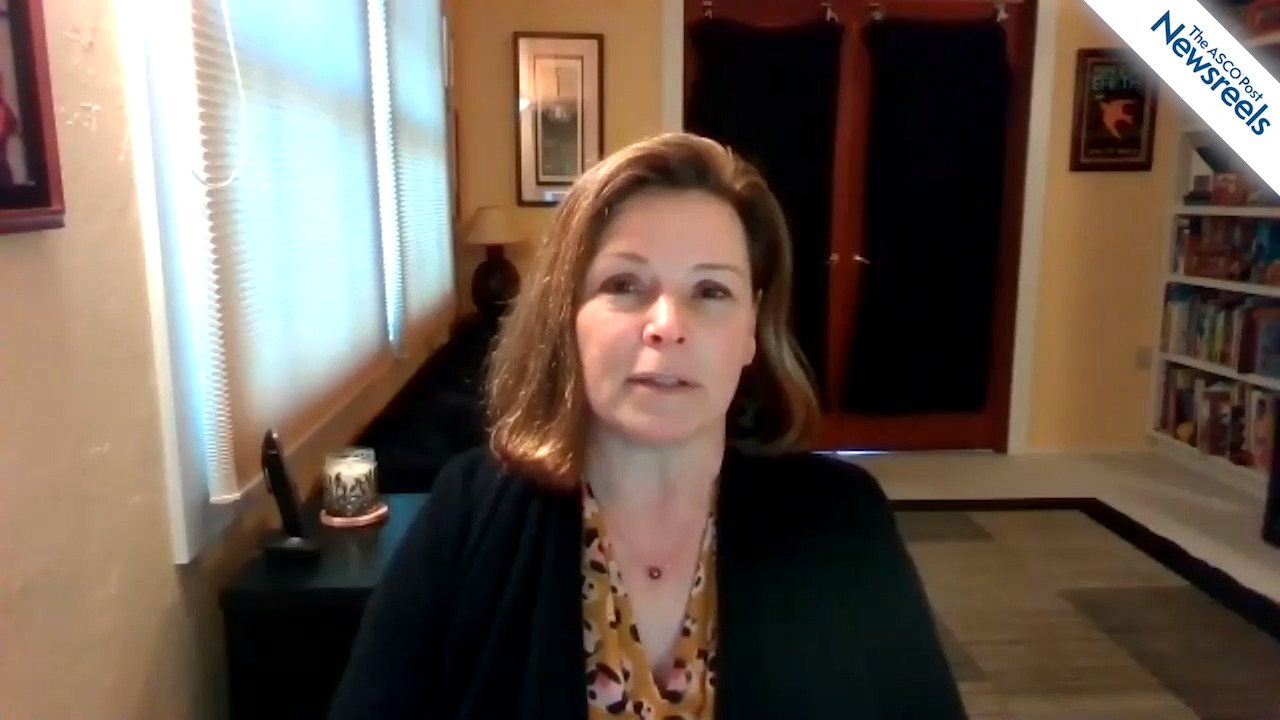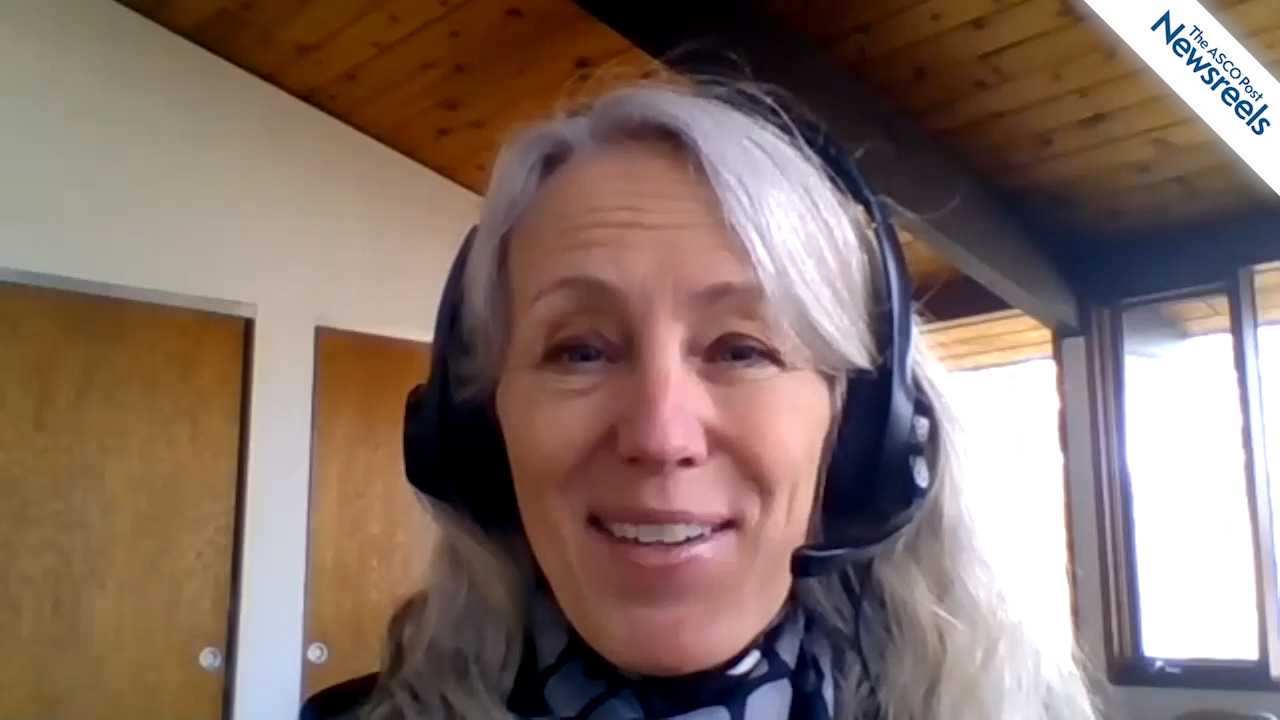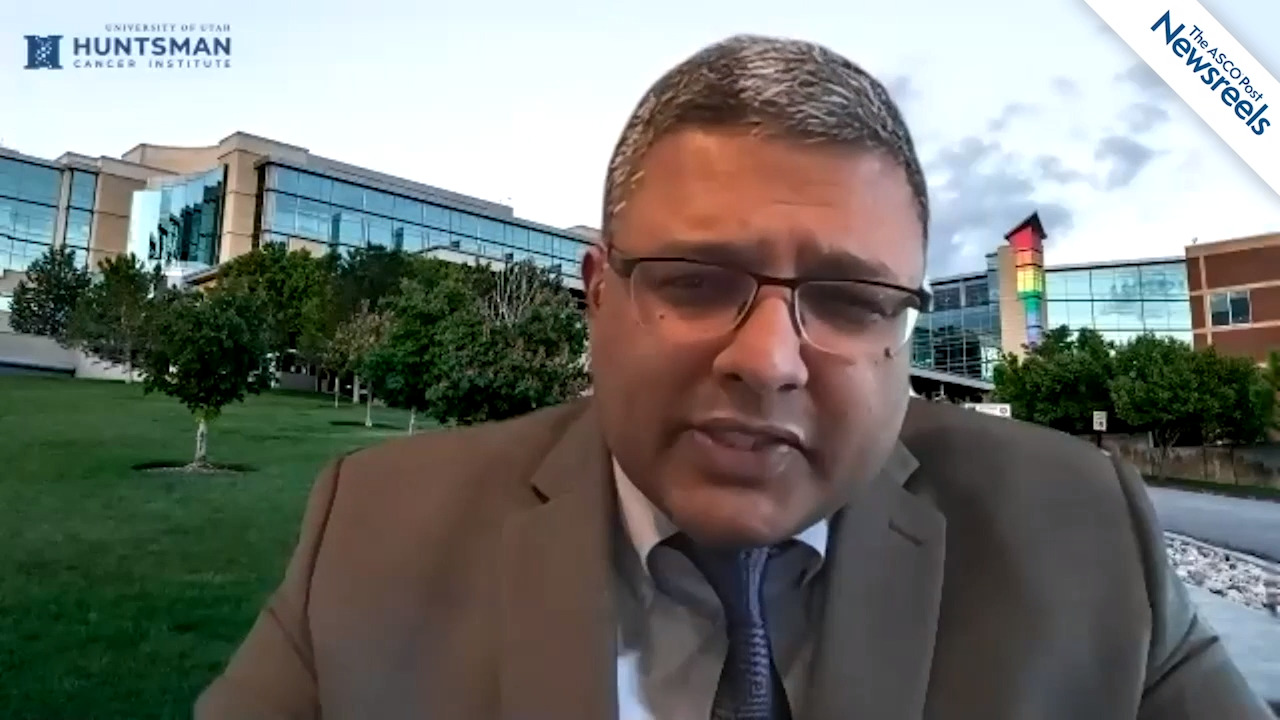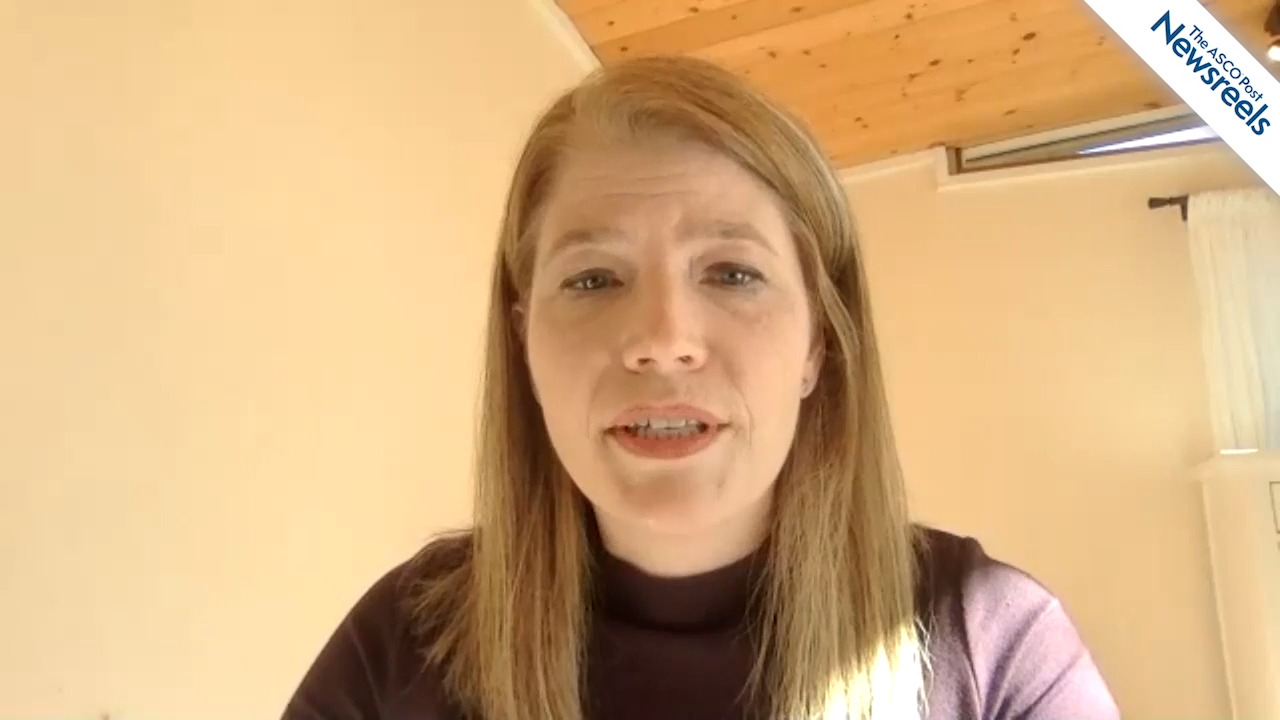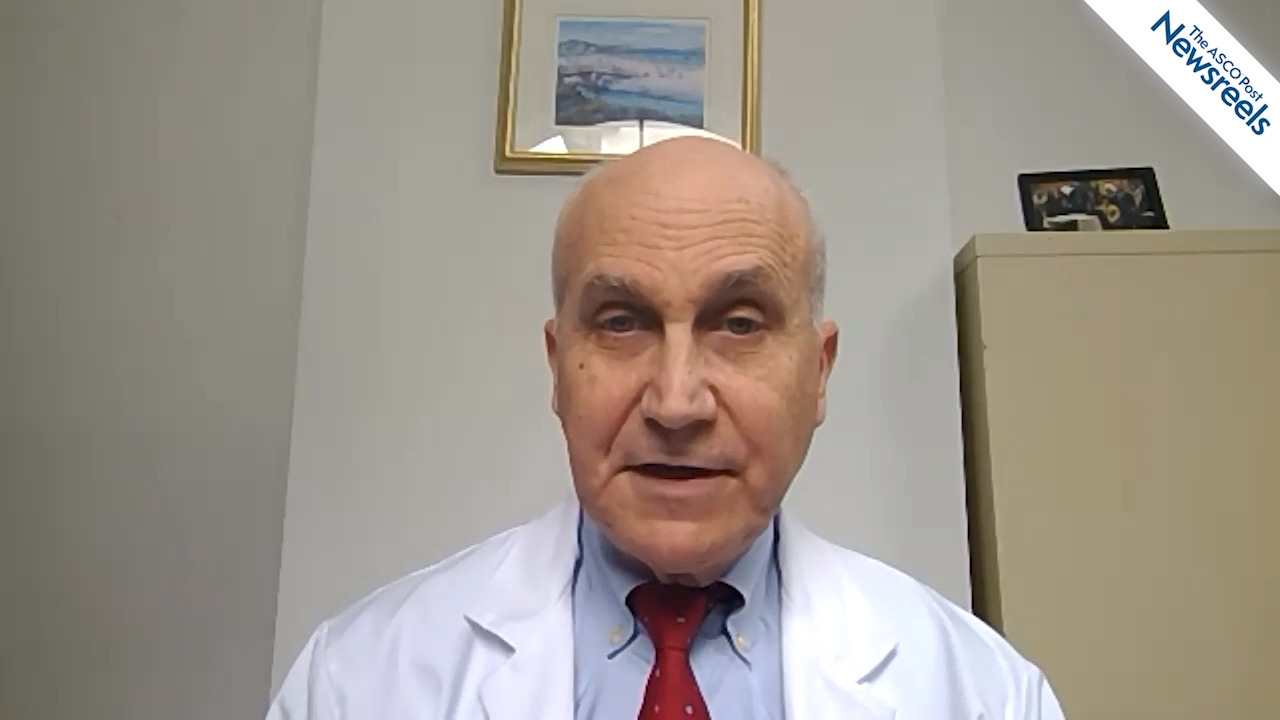Robert Winn, MD, on Strategies for Reducing Racial Disparities in Oncology
NCCN 2021 Virtual Annual Conference
Robert Winn, MD, of the Virginia Commonwealth University Massey Cancer Center, discusses the creation of a health equity report card to track how institutions are dealing with disparities in oncology care, ways to recognize bias in care, and adding health equity experts to guideline panels and other advisory groups.
The ASCO Post Staff
Susan M. Swetter, MD, of Stanford Cancer Institute, discusses molecular prognostic tests for cutaneous melanoma, which may improve staging accuracy, reduce unnecessary sentinel lymph node biopsies, and inform decisions on surveillance imaging and/or adjuvant therapy.
The ASCO Post Staff
Lori J. Wirth, MD, of Massachusetts General Hospital Cancer Center, discusses the common molecular alterations across thyroid cancer subtypes; targeted treatments for BRAF V600E–mutant, NTRK–fusion positive, and RET–altered disease; and optimal therapies for patients with multiple types of thyroid cancer.
The ASCO Post Staff
Thomas K. Varghese, Jr, MD, of Huntsman Cancer Institute at the University of Utah, summarizes a panel discussion on how the COVID-19 pandemic has interrupted cancer screenings, when telemedicine works and when it doesn’t, opening alternative care sites in the community, and the emotional and mental toll the coronavirus has taken on health-care providers.
The ASCO Post Staff
Melinda L. Telli, MD, of Stanford Cancer Institute, discusses highlights of the new NCCN Clinical Practice Guidelines in Oncology®, including nonanthracycline, taxane-based regimens as preferred treatments for patients with HER2-positive breast cancer; newly approved combination therapies such as tucatinib plus capecitabine plus trastuzumab, margetuximab plus chemotherapy, and neratinib plus capecitabine; and recommendations for third line and beyond.
The ASCO Post Staff
David G. Pfister, MD, of Memorial Sloan Kettering Cancer Center, discusses the many considerations when caring for patients with head and neck cancers, such as dental and nutritional issues; side effects from radiation, including necrosis of the bone; oral health; problems with speech; and the concerns of younger patients who may have to cope with the sequelae of treatment such as altered function or disfigurement for years to come.
